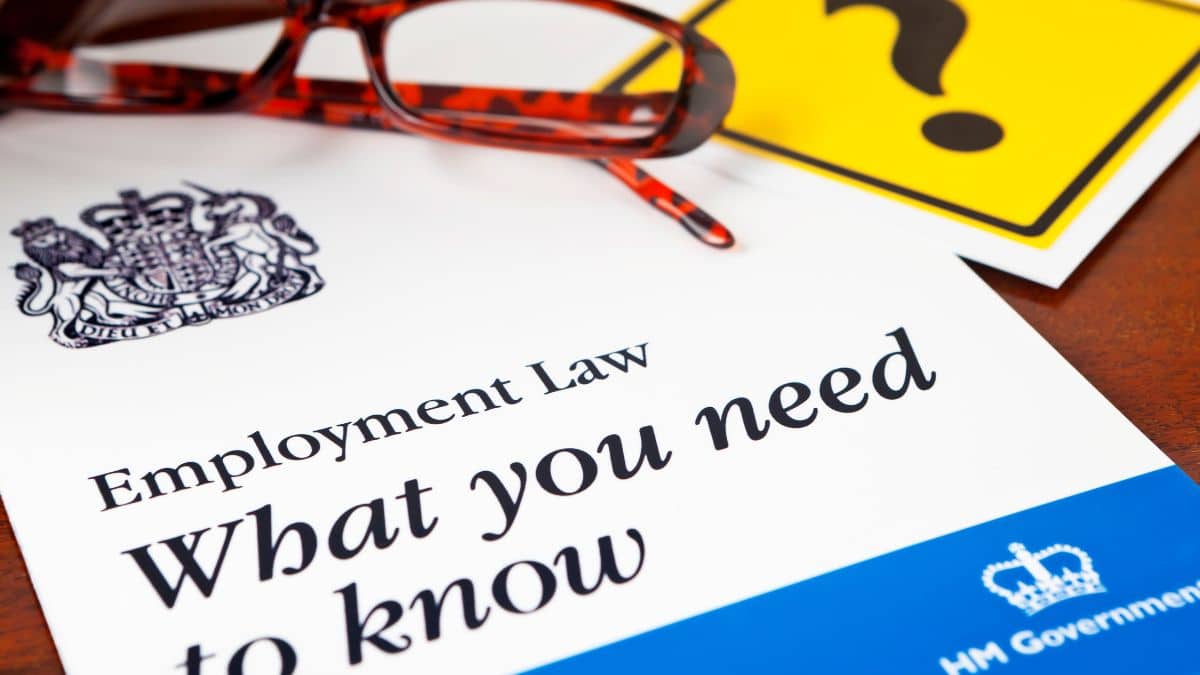The Entrepreneur’s Toolkit: Legal & Regulatory Must-Knows in the UAE

Got a business idea and an eye on the UAE? Nice. You’ve picked one of the coolest places on the map to launch—think Dubai and Abu Dhabi meet Silicon Valley. Low taxes, fast internet, and a spot between Europe, Asia, and Wakanda (okay, not Wakanda, but close).
But before you dive in like it’s a Netflix startup drama, here’s the deal: the UAE plays by its own rulebook. You need to know the basics—licenses, laws, and a few local curveballs—if you want your business to survive past season one.
Why the UAE? A Thriving Hub for Entrepreneurs
Let’s discuss why the UAE is such a draw for entrepreneurs and dreamers with pitch decks before we dig into licenses and legal jargon.
- No personal income tax and low corporate taxes? That’s not a glitch—that’s the reality. You get to keep more of your hard-earned cash. Jeff Bezos would approve.
- Location. The UAE is the ultimate middle seat—between East and West—with global access and actual world-class infrastructure. (Think airports smoother than your last pitch.)
- The government isn’t just watching from the sidelines. With initiatives like UAE Vision 2030, they’re throwing funding, mentorship, and support at startups like it’s the final rose on The Bachelor.
- And let’s not forget how easy they make it to set up shop. No 12-step bureaucratic dance—just streamlined processes and digital systems that actually work (gasp!).
So whether you’re building the next big fintech in Dubai or launching a boutique creative agency in Abu Dhabi, the UAE isn’t just welcoming entrepreneurs—it’s building the stage for them.
Step 1: Understand the Business Structure Options
Choosing your business structure in the UAE is like picking your character in a video game. Each one has its own powers, perks, and rules.
Mainland Companies
Want to do business anywhere in the UAE? Mainland is your jam. These companies are licensed by the Department of Economic Development (DED) in each emirate. And here’s the plot twist: thanks to recent reforms, you can now own 100% of your company in many sectors. No local partner required. Beyoncé would call that “independent business goals.”
Free Zone Companies
If your business is all about international trade, tech, media, or online services, welcome to the Free Zone club. These are designated economic zones that come with their own regulators—and a ton of perks:
- 100% foreign ownership (no sponsor needed)
- Corporate tax exemptions (yes, really)
- Quick and easy setup (fewer hoops to jump through)
Think of it like doing business from a high-end co-working space with VIP treatment. Popular names include DMCC, ADGM, and Shams. It’s like Hogwarts, but for startups.
Offshore Companies
Offshore setups are like the James Bond of business structures—slick, discreet, and meant to operate outside the UAE. They’re great for holding assets, international trade, and protecting privacy, but here’s the catch: you can’t do business inside the UAE.
Perfect for: Investors, holding companies, or entrepreneurs with global ambitions but zero local trade plans.
Step 2: Secure the Right Trade License
Before you sell a single thing, offer a service, or start building your empire, you need your trade license. Think of it like your official permission slip to do business in the UAE—no license, no launch.
But not all licenses are created equal. Choose the wrong one, and it’s like showing up to Comic-Con in a Harry Potter costume when it’s Marvel Day. Awkward… and possibly expensive.
Here are your main options:
Commercial License
For companies engaged in ordinary trade, buying, or selling, a commercial license is Whether your running an online market or importing designer footwear, this one is your go-to.
Professional License
Perfect for service-based companies: consider marketing firms, independent designers, attorneys, or fitness instructors. This is your lane essentially: if you sell brainpower or abilities rather than tangible objects.
Industrial License
For businesses ranging from manufacturing smart home devices to baking organic protein bars that manufacture or generate things. Extra clearances and maybe even warehouse space may be required, but hey, building great things comes with a price.
Step 3: Learn the Key Regulatory Authorities
Starting a business in the UAE? Then you better get familiar with the VIPs of the regulatory world. These agencies may not wear capes, but they control everything from your trade license to your tax returns—basically, the Avengers of business compliance.

Here’s your who’s who:
Department of Economic Development (DED)
They’re the gatekeepers for mainland business licenses. If you’re setting up outside a free zone, this is your first stop. Each emirate has its own DED, so pick your city and get cozy with their rules.
Ministry of Economy
These are the folks managing big-picture business policies, foreign investment, and intellectual property (hello, trademark protection!). Think of them as the Tony Stark of the group—strategic, influential, and very into innovation.
General Directorate of Residency and Foreigners Affairs (GDRFA)
Starting a business means dealing with visas, whether it’s your own, your team’s, or your accountant’s cousin. GDRFA handles residency permits, work visas, and all things immigration.
Federal Tax Authority (FTA)
They’re the tax watchdogs. Once your business hits a certain revenue, you’ll need to register for VAT, file returns, and stay compliant. And no, they don’t accept Monopoly money.
Free Zone Authorities
If you’re launching inside a free zone, these are your one-stop shops for licensing, visas, and support. Each zone has its own rules, perks, and paperwork—kind of like Hogwarts houses but for startups.
Step 4: Master Taxation and Financial Compliance
Let’s be real—“UAE” and “tax haven” used to go together like peanut butter and dates. But lately? The UAE’s been updating its financial rulebook faster than Apple drops new iPhones.
Still tax-friendly? Yes. But now with a few grown-up responsibilities.
Here’s what you need to know:
Corporate Tax – It’s Official
Since June 2023, the UAE has rolled out a 9% corporate tax on net profits over AED 375,000. So, if you’re making real money (go you!), it’s time to share a slice with the taxman. Anything below that? You’re still in the tax-free zone. Literally.
VAT – The 5% Club
The Value-Added Tax (VAT) is like the cover charge for doing business here—5% on most goods and services. If your business brings in more than AED 375,000 a year, you must register with the Federal Tax Authority (FTA). No excuses, even if you’re still figuring out Canva.
ESR + UBO – The Transparency Twins
Meet your new compliance buddies:
- ESR (Economic Substance Regulations): Proves your business is real, not just a cool name on a postbox.
- UBO (Ultimate Beneficial Ownership): Reveals who’s really calling the shots behind the scenes.
Both are mandatory, especially if you want to avoid fines (or awkward emails from regulators).
Step 5: Navigate Visas and Employment Laws
Planning to hire your dream team—or just want to sponsor your own visa so you can legally boss yourself around? Either way, visas and labor laws in the UAE are a big deal, and skipping the fine print is like skipping the Terms & Conditions—risky.

Here’s what to keep in your founder brain:
Business Visas and Residency
Want to stay long-term and build your empire in peace? Golden Visas are your golden ticket. They offer 10-year residency for entrepreneurs, investors, and other high-flyers (with the right credentials, of course).
More of a freelancer or digital nomad? Certain emirates offer remote work visas so you can work from the beach without having to ghost immigration.
Labor Law Essentials
UAE’s updated Labour Law (Federal Decree Law No. 33 of 2021) is your go-to if you’re hiring. It covers all the boring-but-essential stuff like:
- Contract types (Limited vs. Unlimited – no, not a Netflix subscription)
- Probation periods (usually 6 months to prove they’re not just good at interviews)
- Leave entitlements (vacation, sick days, and maybe a TikTok break?)
- Termination protocols (yes, firing people has rules)
PRO Services
Don’t want to battle all this bureaucracy solo? Call in a PRO (Public Relations Officer). These folks handle:
- Visa applications and renewals
- Employee onboarding
- Translating legalese into actual English
Step 6: Protect Your Intellectual Property
In the startup world, your idea is your secret sauce. So before someone copies it, slaps on a new logo, and calls it “theirs,” you need to protect your Intellectual Property (IP) like it’s Baby Yoda.
Good news: The UAE takes IP seriously, and you’ve got a few solid options to guard your genius.
Trademarks
Want to stop people from stealing your logo, brand name, or that catchy slogan you thought of in the shower? Register your trademark with the UAE Ministry of Economy. It’s your brand’s version of a shield in Mario Kart—blocks all sorts of copycat attacks.
Patents & Industrial Designs
If you’ve created something totally new—like a smart coffee mug that tracks hydration or an AI that writes your emails (oh wait…)—you’ll want a patent. You can register with the Gulf Cooperation Council (GCC) Patent Office or locally in the UAE.
Copyright
Made a website? Wrote content? Designed an app interface? Congrats—it’s already protected by copyright as soon as you create it. But if you want extra legal muscle in case of a dispute, registering it makes things way easier when someone tries to clone your work.
Step 7: Tap Into Government & SME Support Programs
Starting a business is hard. Starting one without support? Even harder. Luckily, the UAE doesn’t just cheer for entrepreneurs—it backs them with serious funding, mentorship, and resources. Basically, the government is your early-stage investor… minus the equity grab.

Here’s your cheat code list:
MBRIF (Mohammed Bin Rashid Innovation Fund)
Think Shark Tank, but backed by the UAE government. Get funding for innovative ideas, minus the dramatic music.
Khalifa Fund for Enterprise Development
Helping Emirati-owned businesses level up with capital, advice, and support. It’s the hometown hero fund.
Dubai SME
Like a startup Swiss Army knife—offering training, funding, mentorship, and support to help you grow smarter, not harder.
Hub71 (Abu Dhabi)
This one’s the Silicon Valley of the Middle East, packed with access to VCs, accelerators, co-working spaces, and tech events. Yes, you’ll need a killer pitch deck.
Step 8: Embrace Digital Compliance and Cybersecurity
Running an online business? Great. But remember: the internet isn’t the Wild West anymore. The UAE has set clear digital rules to protect users, data, and your business from cyber gremlins.
Here’s your survival kit:
UAE Data Protection Law (2022)
If you collect customer data (spoiler: you do), then this is your GDPR-style guide. It tells you how to store, use, and protect data without crossing the legal line. Think of it as the “don’t be creepy with user info” law.
eCommerce Licensing
If you’re selling stuff online—even digital products—you need the right license. In Dubai, it’s the E-Trader license. Other emirates have their own versions. Yes, that Etsy side hustle counts too.
Cybersecurity Regulations
Especially if you’re in fintech, health tech, or anything involving payments—the UAE’s Cybersecurity Strategy means you need solid protections in place. Firewalls, encryption, the works.
Bonus: Common Pitfalls to Avoid
Even the most brilliant founders can trip up on the basics. Avoid these common “oops” moments so your business doesn’t end up in a compliance blooper reel:
Skipping Your License Renewal
Your trade license needs a yearly refresh—like a gym membership, but way more important. Miss it, and you’re looking at fines, delays, or a full business shutdown. Set a calendar reminder. Or five.
Messing Up Visa Sponsorship
Using the wrong visa or letting it expire? Big no-no. The UAE takes immigration rules seriously. Don’t play visa roulette—sponsor correctly and stay on top of renewals.
VAT Procrastination
Late VAT returns or skipping registration when you pass AED 375,000 in turnover? That’s a fast track to penalties. The Federal Tax Authority (FTA) does not accept “I forgot” as an excuse.
Picking the Wrong Setup
Free zone? Mainland? Offshore? Don’t guess based on what your cousin did in 2018. The wrong structure can limit who you can work with or cost more in the long run.
Contracts That Google Translate Can’t Save
Doing business in the UAE? Your contracts need to be in Arabic + English. Skip this step, and your agreements might not hold up in court. Spanglish won’t cut it either.
Conclusion: Your Legal Launchpad to Entrepreneurial Success
The UAE is a goldmine for startups—but only if you know how to play the game. From picking the right setup to handling taxes, visas, and contracts, the rules matter.
Nail the legal stuff early and you’ll avoid drama later (think: less “oops,” more “IPO”). It’s like building with LEGO—if the base is solid, the rest stacks up fast.
So prep smart, stay compliant, and treat this toolkit like your startup’s GPS. The runway’s clear. Now go make business magic happen.





